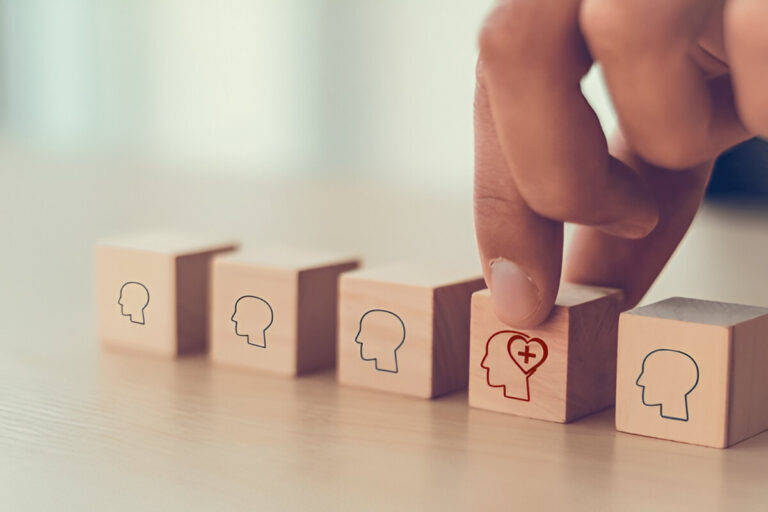To be honest, mental health is no longer a buzzword. it is something that we all have to work on. Life happens, stress accumulates and before you know it, you’re burnt out and overwhelmed. The good news? You do not have to transform your life to feel better. Science has got your back, and there are tested hacks that you can apply from today. We’ve put together 10 mental health hacks that science says work and make you feel good.
Table of Contents
ToggleHack 1: Practice Deep Breathing
The Science of Breathwork
You may think that breathing is too trivial to count, but your lungs are a secret weapon. Slow, deep breaths stimulate your parasympathetic nervous system that relaxes your body and reduces stress hormones such as cortisol.
Simple Breathing Exercises
Try the 4-7-8 technique: Breathe in for 4 seconds, hold for 7, breathe out for 8. Only two minutes of this technique can make you feel much calmer.
Hack 2: Get Moving with Exercise
The Brain and Physical Activity.
You don’t have to be fit to see the mental health benefits of exercise. When you move your body, you raise dopamine, serotonin, and endorphins, which all help your mood.
Recommended Types of Exercise
You don’t have to train for a marathon. Doing a brisk walk, dancing, or jogging lightly 3–4 times weekly can really help.
Hack 3: Prioritize Quality Sleep
Sleep and Mental Health Connection
Bad sleep plays with your mood, focus, and emotional stability. Research indicates that people who can’t sleep well are 10 times more likely to have depression.
Sleep Hygiene Tips
- Stick to a bedtime routine
- Don’t look at screens for at least one hour before you go to sleep.
- Make your bedroom cool and dark.
- Limit caffeine after noon
Hack 4: Practice Gratitude Daily
Advantages of Gratitude on the Mind
Gratitude rewires your brain. Focusing on what you’re grateful for can raise dopamine and make you mentally stronger.
A Gratitude Journal: How to Keep One.
Every night, list three things you are thankful for. Keep it specific: Writing something like ‘the smell of coffee this morning’ is more effective than writing general things.
Hack 5: Limit Social Media Usage
Social Media Effect on Mental Well-being
Scientists have found that heavy social media use raises anxiety, depression, and loneliness, mainly when you just scroll and don’t interact.
Digital Detox Tips
- You can use Forest or Freedom to help you stay focused.
- Unfollow accounts that trigger comparison
- Instead of scrolling, read or listen to a podcast.
Hack 6: Choose foods that are good for your brain.
Gut-Brain Connection Explained
Your gut is your “second brain”. Because 90% of serotonin is made in the gut, your diet can change your mood.
Mood-Boosting Foods
- Omega-3s (salmon, walnuts)
- Leafy greens (spinach, kale)
- Probiotics (yogurt, kimchi)
- Dark chocolate (yes, really!)
Hack 7: Spend Time in Nature
Nature’s Therapeutic Effects
Being in nature for 20 minutes can lower your stress hormone levels. Trees, sunlight, and fresh air all help make you feel better, just like nature’s antidepressant.
Simple Ways to Get More Nature in Your Day
- Eat lunch outside
- Walk in a local park
- Set up a little garden on your balcony.
Hack 8: Talk to Someone
The Importance of Talking to Others
Loneliness is as bad as smoking 15 cigarettes a day. Having conversations with others boosts oxytocin, the love hormone, which helps you feel better and less stressed.
Therapy, Support Groups, and Loved Ones.
Talking with a therapist, friend, or support group can help you sort things out and see things differently.
Hack 9: Practice Mindfulness and Meditation
How Mindfulness Changes Your Brain
Mindfulness lowers activity in the amygdala and increases grey matter in parts of the brain that help with emotion and memory.
Simple Mindfulness Exercises
- Pay attention to your breathing for 5 minutes.
- Observe 5 things you see, 4 you feel, 3 you hear, 2 you smell, 1 you taste
- You can use apps such as Calm or Headspace.
Hack 10: Set Small, Achievable Goals
The Psychology of Small Wins
Your brain gives off dopamine when you reach a small goal. Small wins help you keep going and make you feel more confident.
How to Set SMART Goals
- Specific: Know what you want
- Measurable: Track your progress
- Achievable: Don’t overdo it
- Relevant: Make it matter to you
- Time-bound: Set a deadline
Conclusion
You don’t have to think of mental health as something too hard. With these 10 science-based hacks, you are already on your way to a calmer, happier, and more balanced life. Start small. Try out one or two hacks that you think will work for you. Over a period of time, they will accumulate in ways you never thought of.
FAQs
1. Will mental health hacks work as a replacement for therapy?
Not entirely. These hacks are good for your mental health, but you should still get professional help if you need it.
2. How quickly do these hacks start to work?
Some (for example, deep breathing) help right away. It usually takes a few weeks of doing these, like getting better sleep or exercising, to see results.
3. Are these hacks good for all people?
Yes, they can be beneficial to most people. If you have any medical or mental health condition, it’s best to talk to a professional first.
4. Which hack is the best to try at the beginning?
Begin with the one that seems the most natural to you – small steps bring about great changes.
5. How do I make sure I keep up with these habits?
Add new habits to what you already do, use reminders, and keep a record of your progress to help you stay consistent.





